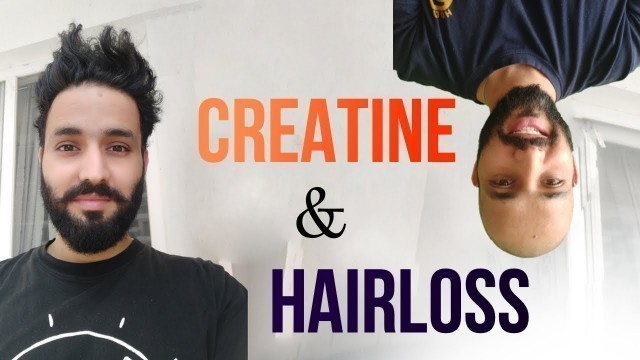

'Only one RCT has linked creatine supplementation with an increase in DHT. This study was done in 20 healthy young male rugby players, randomized into two groups: one group took a placebo, while the other supplemented with creatine monohydrate by taking a loading dose (25 g/day) for 7 days, then a maintenance dose (5 g/day) for 14 days. Changes in testosterone were not significantly different between the two groups, but DHT was significantly increased at day 7 (by 0.44 ng/mL above baseline, so 56.1%) and day 21 (by 0.12 ng/mL above baseline, so 40.8%) in the creatine group. A published response to this study inquired mostly about methods but found no statistical faults. Of note is that this study tested its creatine for 25 different potential adulterants, such as stimulants and androgenic steroids. None were detected, ruling out the possibility that changes in DHT were due to illegal contaminants. To date, this has been the only RCT testing creatine’s effects on DHT. However, a number of studies have tested creatine’s effects on testosterone. Only two RCTs saw a significant increase in testosterone when supplementing with 20 g of creatine per day over 6 days and 7 days. Ten RCTs have found no effect of creatine on testosterone.These RCTs ranged in duration from 6 days to 10 weeks and used creatine monohydrate doses ranging from 3 to 25 g/day. One RCT that used creatine malate also saw no effect on testosterone levels. Importantly, five of these RCTs specifically tested creatine’s effects on free testosterone, the form that gets converted into DHT. All saw no significant increases. Is it possible for creatine to increase DHT without increasing testosterone, as was reported in one study? Actually, yes, in at least two ways. First, creatine might non-significantly increase free testosterone yet significantly increase DHT (i.e., a small increase in free testosterone, the base material of DHT, could lead to a much greater increase in DHT). Second, creatine might be upregulating 5-alpha-reductase, the enzyme that converts free testosterone to DHT. One or both hypotheses could be true. Or neither. The current evidence simply doesn’t allow us to take a stance. Before we conclude, we need to mention three caveats. First, these studies were all conducted in healthy young males, and all but one in athletes or other trained individuals. Second, in the one study that looked at DHT and noted an increase, DHT stayed well within normal range; so even if creatine increases DHT, it still may not cause greater loss of hair than would otherwise occur. Third, and most important: the effect of creatine supplementation on hair loss hasn’t been directly studied, so all we can make are educated guesses. Download FJunction app ( Free diet and workout plan) https://play.google.com/store/apps/details?id=com.hb.fjunction Online Training Call/whatsapp Akash 9717188993 For business related queries [email protected] Follow me on instagram https://www.instagram.com/anurag.fj/ Our Facebook Page https://www.facebook.com/FitJunc/ Our facebook group https://www.facebook.com/groups/fitjunc/ Buy some workout wear https://www.fjunction.com/store/gym F junction is a fitness and grooming channel where information on scientific basis is provided. Anurag Sharma is an engineer and an ISSA certified trainer and sports nutritionist.'
Tags: whey protein , creatine , creatine side effects , creatine and hair loss , fjunction , creatine side effects hair loss , how to use creatine monohydrate powder , creatine kaisey use karen , क्रेअटीने पाउडर यूज़ , क्रेअटीने क्या है , creatine and whey protein together , creatine and keto , natural bodybuilding supplements that work , supplements side effects in hindi
See also:

















comments